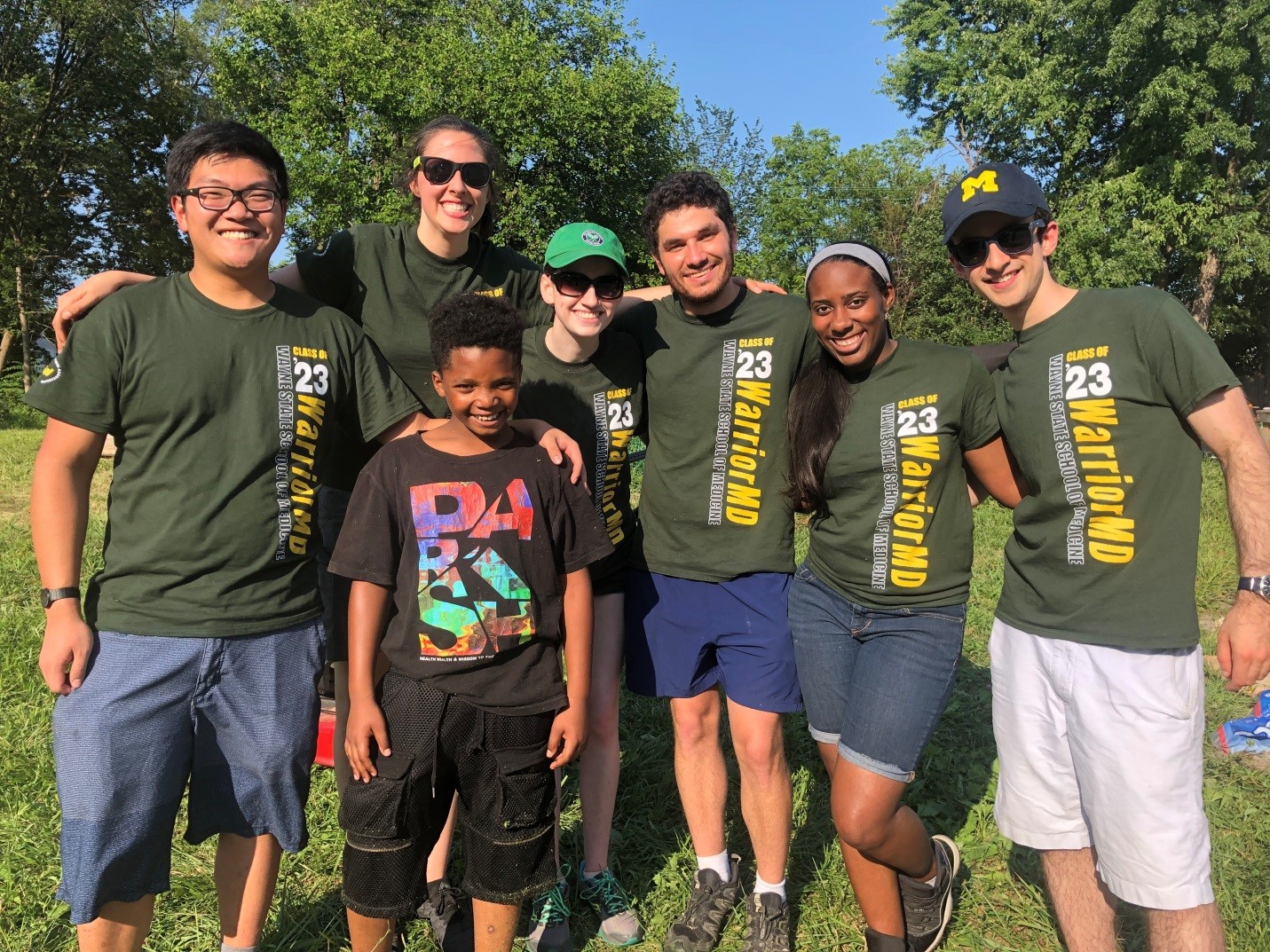The Wayne State University School of Medicine’s 294 freshmen medical students have been busy completing their first service-learning project less than a month into medical school.

Throughout August, the students of the Class of 2023 spent two hours each volunteering on evenings or weekends at one of four urban community gardens in Detroit neighborhoods – Keep Growing Detroit, Auntie Na's Garden, HUDA (Health Unit on Davison Avenue) Garden and Michigan Urban Farming Initiative – where they also completed a systematic observation of the community called a “windshield assessment.”
The assessment activity was developed by four medical students in the Class of 2022.
“It is performed when traveling or walking where you are participating in the assigned ZIP code, observing and taking note of the characteristics. The information gathered helps identify health care strengths and weaknesses in the specified community,” said Director of Community Engagement Jennifer Mendez, Ph.D.
The tool helps medical students keenly observe their future patients’ living conditions, further emphasizing the social determinants of health they will encounter in their patient population as physicians. After volunteering, students were required to submit descriptions of the neighborhood in which they volunteered, including types of housing and its condition; any parks, sports fields or additional urban farms; types of advertising; whether there were sidewalks available; if people were out walking or biking; and any obvious environmental hazards. They also tallied what types of businesses were in the route, including grocery stores, gas stations, pharmacies, schools, libraries and fitness facilities.
The windshield assessment was one of the students’ first assignments for the Population, Patient, Physician and Professionalism course, directed by Associate Professor of Pediatrics Nakia Allen, M.D.
P4 is a Year 1 to Year 2 course that emphasizes the evolving professional identity of a physician connected to patients and populations. The course exposes students to their roles as clinician, leader, interprofessional collaborator, scholar and systems analyst through large-group sessions, small-group sessions, online modules, self-directed reflective assignments and clinical opportunities in the community.
“I am very glad I was able to volunteer, and the form helped me to look for things that I may not have noticed otherwise. In the future, I will be keeping the same things in mind regardless of it being required,” said student Sean McCarthy, who volunteered at Auntie Na’s Garden.
The assessment also asked for the ethnic and cultural makeup of the people they saw, any evidence of ethnic festivals or celebrations of cultural pride, and any businesses that catered to specific ethnicities.
“It was productive and also a great experience to get to know the neighborhood as well as the unique urban farming setting,” said Pule Wang, who volunteered at the Michigan Urban Farming Initiative.
Finally, students reflected on their experience by sharing if they would feel safe or comfortable living in the area or walking in the neighborhood, how residents may feel, and how they think the neighborhood might impact the health of residents, including how the presence or absence of environmental features could impact health.
“Our job was to clear a field of all knee-high weeds, rocks, toys and trash so that later, groups could convert the field into a garden. Because the weeds were so dense and had thick stems, we used what was left of their spool of trimming nylon wire and ran out before the job was done, slowing down progress as we switched to manual methods,” added Miranda Sterner, who volunteered at Auntie Na’s. “Overall, it was fun working with a neighborhood kid and my group mates to help start a community garden in a neighborhood where we didn’t see any obvious grocery stores.”